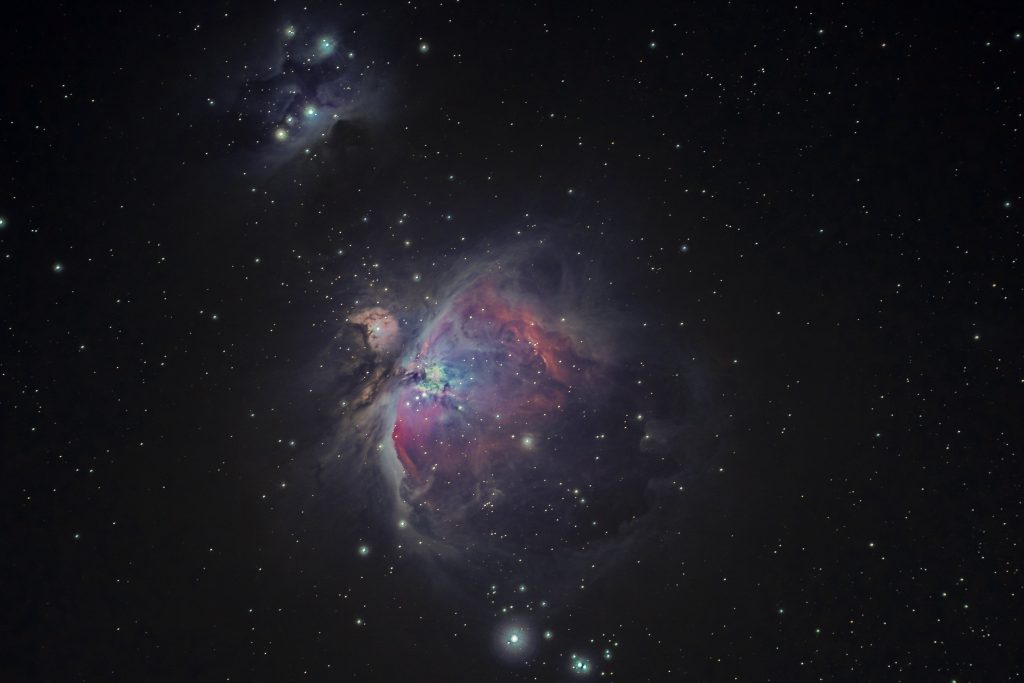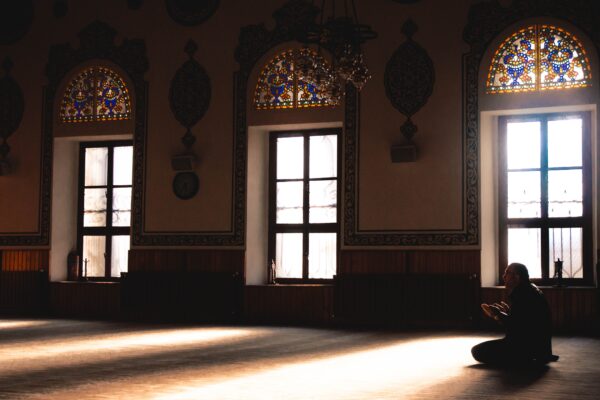It cannot be denied that Einstien’s Time, in certain aspects of the theory at least, does come substantially close to the Quranic conception of time.
It cannot be denied that Einstien’s Time, in certain aspects of the theory at least, does come substantially close to the Quranic conception of time.
Time. A perpetual mystery. An ancient debate. The age-old conundrum that has baffled humanity; and what humanity has, consequently, been trying to comprehend since the beginning of time (no pun intended!).
Before Einstein came out with his groundbreaking Theory of Relativity that altered the entire face of science as we know, a preexisting notion of absolute time, mainly attributed to Sir Isaac Newton, had predominated scientific thought for at least two centuries.
From the advent of Islam up until the 20th century, Muslim thinkers and philosophers, in their quest for knowledge and truth, took a keen interest in the idea and concept of time — taking pains in trying to solve this ultimate puzzle, attempting sometimes to understand it in light of Quranic teachings and, at other times, making an effort to bring about an amalgamation of ancient Greek thought with Quranic allusions on the subject.
Amongst the modern Muslim philosophers, Allama Muhammad Iqbal has spearheaded the debate around the idea of time, particularly in his work The Reconstruction of Religious Thought in Islam. Though a great admirer of Einstein and his groundbreaking propositions, Iqbal in fact disagreed with the concept of time propounded by Einstein in his Theory of Relativity. Iqbal was of the opinion that:
“Einstein’s Relativity presents one great difficulty, i.e. the unreality of time. A theory which takes time to be a kind of fourth dimension of space must, it seems, regard the future as something already given, as indubitably fixed as the past. Time as a free creative movement has no meaning for the theory. It does not pass. Events do not happen; we simply meet them.”
(Reconstruction, Lecture 2)
Iqbal’s disagreement with Einstien’s conception of time does not imply, however, that he altogether disagreed with the entire theory. He deemed Einstien’s theory as being deficient in defining time beyond a physical entity, and that by intertwining time with space, time was converted into a physical entity comprising of a set system of coordinates – a straight line composed of spatial points, much like space:
“It appears to me that time regarded as a fourth dimension of space really ceases to be time.”
It cannot, however, be denied that Einstien’s Time, in certain aspects of the theory at least, does come substantially close to the Quranic conception of time.

The idea of time dilation in the General Theory of Relativity can, in fact, be viewed as evidence of Divine Time being different from serial time. Time dilation, according to the General Theory of Relativity, is the slowing down of time for an observer who is either moving at or near the speed of light or is situated near a massive gravitational field.
According to modern physics, the speed of light is absolute. And interestingly enough, philosophy refers to God as the Ultimate Reality. The Quran repeatedly analogizes God to Light, or Noor, referring to God as the “Light of the Heavens and the Earth (Surah Al Noor)”. Quite evidently, therefore, the absolute nature of light in physics, and especially in the Theory of Relativity, appears not only to validate but to, in fact, complement the Quranic allusions to God as Noor.
Consequently, Time Dilation may be referred to as Divine Time, implying that time for God is very different from what it is for us. God is the Creator of time, and thus moves and exists beyond time, while we, the creation, seemingly move within time. The Quran is explicit on the difference between Divine Time and the human perception of time:
“A day of your Lord is like a thousand years of what you count.”
The Holy Quran (22:47)
In addition, the following verse of the Quran describes the Velocity Time Dilation, and further emphasises the differences between Divine Time and serial time as experienced by us:
“He arranges [each] matter from the heaven to the earth; then it will ascend to Him in a Day, the extent of which is a thousand years of those which you count.”
The Holy Quran (32:5)

The matters mentioned here have been interpreted as angels, and since angels, according to the Quranic description, are creatures comprising of Light, they would undoubtedly be traveling around the cosmos at the speed of light, which would result in the aforementioned Kinematic Time Dilation. Hence a day for God and His angels would be equivalent to a thousand years on Earth from the perspective of a human observer 1400 years ago when the Quran was revealed and people traveled on horses and camels.
Iqbal’s conception of time was inspired by Henri Bergson on the subject. Henri Bergson (1859–1941) was one of the most famous and influential French philosophers of the late 19th and early 20th century. In his famous work Time and Free Will, seen as an attack on Kant’s denial of freedom, Bergson proposed to differentiate between time and space and to segregate them from each other, as opposed to the concept of spacetime posited by modern physics. The immediate data of consciousness, according to Bergson, was temporal, which he called “la duree”, or the “duration”. This Duration, or Pure Duration, is what Iqbal referred to as the immediacy of conscious experience, and as a means of grasping reality as a whole.
According to Iqbal, the self has two sides, the Efficient Self and the Appreciative Self:
“On its efficient side it enters into relation with what we call the world of space. The efficient self… discloses itself as nothing more than a series of specific and consequently numberable states. The time in which the efficient self lives is, therefore, the time of which we predicate long and short. It is hardly distinguishable from space. We can conceive it only as a straight line composed of spatial points… “
The Efficient Self is, therefore, the outward, temporal part of the self, which is in touch with the “real” world as experienced by our sense-perception – the self which exists in space-time. The Appreciative Self, on the other hand, is the inner self, which has the capacity to transcend spacetime.
” … the appreciative side of the self… In the life-process of this deeper ego, the states of consciousness melt into each other. There is no numerical distinctness of states in the totality of the ego… the time of the appreciative-self is a single ‘now’ which the efficient self, in its traffic with the world of space, pulverizes into a series of ‘nows’ like pearl beads in a thread. Here is, then, pure duration unadulterated by space.”
Real-time, or pure time, for Iqbal is experienced by traversing the serial nature of time:
“Pure time, then, as revealed by a deeper analysis of our conscious experience, is not a string of separate, reversible instants; it is an organic whole in which the past is not left behind, but is moving along with, and operating in, the present.”
Time thus experienced as a free movement gives rise to the Quranic concept of Destiny:
” … the future is given… not as lying before, yet to be traversed; it is given only in the sense that it is present in its nature as an open possibility. It is time regarded as an organic whole that the Qur’an describes as Taqdir or the destiny – a word which has been so much misunderstood both in and outside the world of Islam. Destiny is time regarded as prior to the disclosure of its possibilities.”
Just as God exists in pure time, the human ego has the capacity and potential to exist in real time, which happens when we create and design our own world and act as the architects of our own Destiny:
“To exist in real time is not to be bound by the fetters of serial time, but to create it from moment to moment and to be absolutely free and original in creation. “





